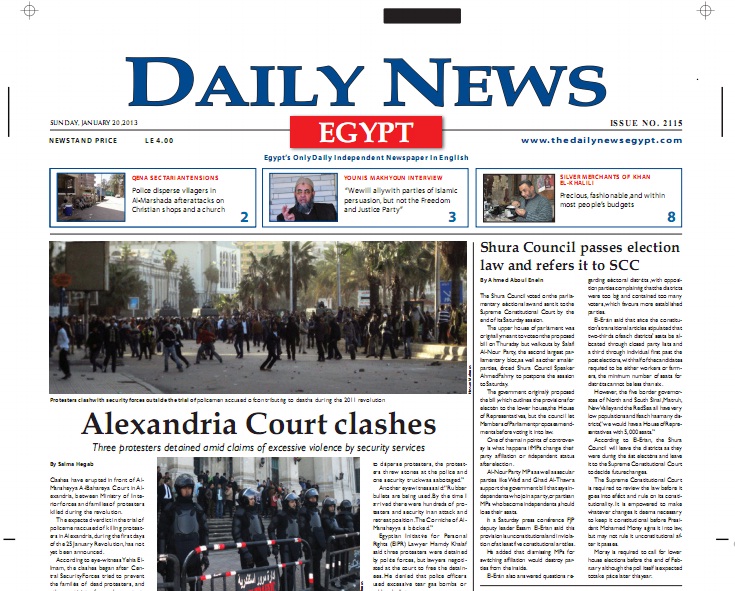CAIRO: In public universities, where political activism usually evokes fear of arrest, simulation models of international institutions remain one of the few “safe means of student interaction.
One of those models is the International Model of the European Union (IMEU), which held its opening ceremony on Wednesday. The model, like most of the simulation models, takes place in the Faculty of Economics and Political Science in Cairo University.
“You come here, you find new ideas, new culture, you learn how to express yourself and how to accept and tolerate the other, says Khaled Abdel Megeed, a 22-year-old student in the Faculty of Economics and Political Science.
The model, which is open for anyone to join, starts at around late October each year, where students attend weekly sessions in the weekend, preparing for the simulation European Union councils.
One of this year’s five councils is the Euro-med civil forum, which discussed civil society organizations in the region.
“Civil society is very important, and it’s something that can, and does make change. We wanted to tell people about civil society, said Menna Adel, from the Academic Committee in that council.
In the council, participants compared between the civil society in Europe and in Egypt. “Of course in Europe they were more successful. We researched and discussed the constraints in the law and other obstacles that NGOs face here, Adel said.
Among the speakers at the opening ceremony, was Dr Klaus Ebermann, the ambassador of the European Commission in Egypt, which is one of the permanent sponsors on the model, along with the French Center for Culture and Cooperation.
Since the ambassador’s daughter participates in one of the simulation models here in Cairo, Ebermaan was very enthusiastic about the model.
“I’m carried away by the enthusiasm I see today . to see so much woman power, he said.
The IMEU sends reports to the commission before and after the model takes place about the councils that will be featured that year. “We send them reports, but they do not get involved in anything in the model, not even the topics we discuss, said Nihal Farag, the High Representative of the IMEU.
Hafez Abu Seada, secretary general of the Egyptian Organization for Human Rights, was the keynote speaker in the evening.
“It’s very important that our children understand the mechanisms in which the EU works: how they discuss matters. Everything that was on the model’s program was also mentioned in the EU resolution, he said, referring to the EU’s recent resolution that criticized the state of human rights in Egypt.
There was also representation from the French embassy in the event. “There is cooperation between the French embassy and the faculty of Economics and Political Science. And a few years ago, they decided to strengthen the understanding of young people to how the EU works, which is not very easy. It’s a good way for cooperating with Egypt for us, says Philippe Devaud, counsellor of Multilateral Cooperation.
“It’s a good way for them to learn about the EU, and to train them at the same time.
And, wanting to learn about the EU was the reason why Nihal Farag joined in the first place. “Everyone was talking about, and wanted to join the Model United Nations or the Model Arab League, but I wanted to know more about the EU, she says.
One of the things they tried to do in the model, Farag explained, is to continuously encourage participation in more interactive and intellectual discussion.


